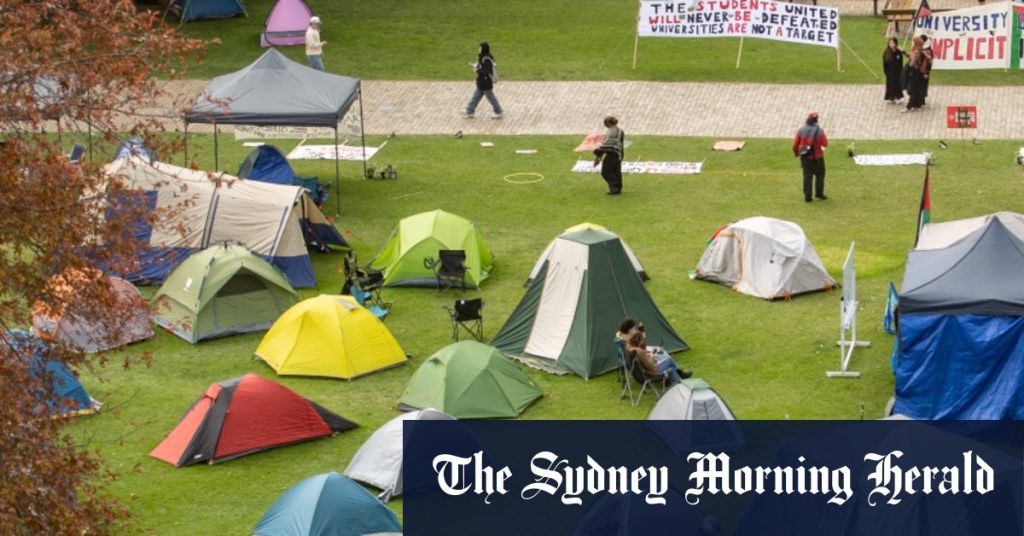Students across Australia have set up encampments at six universities in solidarity with Palestine, engaging in peaceful protests to demand accountability from their universities for their research funding deals with weapons manufacturers and foreign militaries. While some Jewish groups have called for these camps to be evicted, citing concerns about creating no-go zones for Jewish students and fostering antisemitism, the students at the camps stress that their protests are peaceful and inclusive. Many of the protesters are Jewish themselves and want to ensure that everyone feels safe and heard.
The camps at universities like Melbourne and Monash have seen a mix of support and opposition, with some individuals wearing Israeli flags and engaging in counter-protests. Despite this, the Australian camps have been described as “much more chill” in comparison to the US, where demonstrations have escalated into physical confrontations with law enforcement. While Australian universities have emphasized the importance of safety, they have not taken steps to clear out the protesters, recognizing the history of student protests and activism on campus.
Organizers of the protests, like Varisha Ariadna at the University of Melbourne, have highlighted the organic nature of the demonstrations, driven by local Palestinian students and supported by various pro-Palestinian groups and the broader community. These protesters have stressed the importance of critical thinking and discourse on campus, pushing back against efforts to silence their demands for justice. The encampments have also garnered support from groups like the Australasian Union of Jewish Students, who are hosting rallies to stand up against hate on campus.
The tensions at these university camps reflect the broader conflict in Gaza, with protesters holding moments of silence for academics killed in the war and discussing the devastating impact on children and families in the besieged enclave. The protesters express a sense of urgency and solidarity with the Palestinian people, recognizing the privilege they have to live in safety compared to those living in Gaza under constant threat of violence. While these camps represent a space for peaceful protest and advocacy, concerns remain about potential escalation and the involvement of external actors seeking to inflame tensions.
As the protests continue, students like Noah Loven from the Australasian Union of Jewish Students hope to create a sense of community and support for Jewish students who may feel marginalized or unsafe on campus. The protesters maintain that their demands are not meant to incite hate or violence, but rather to bring attention to the ongoing conflict and hold their universities accountable for their research partnerships. The demonstrations at Australian universities symbolize a broader movement for justice and solidarity with Palestine, highlighting the importance of free speech, protest, and peaceful activism in a democratic society.


